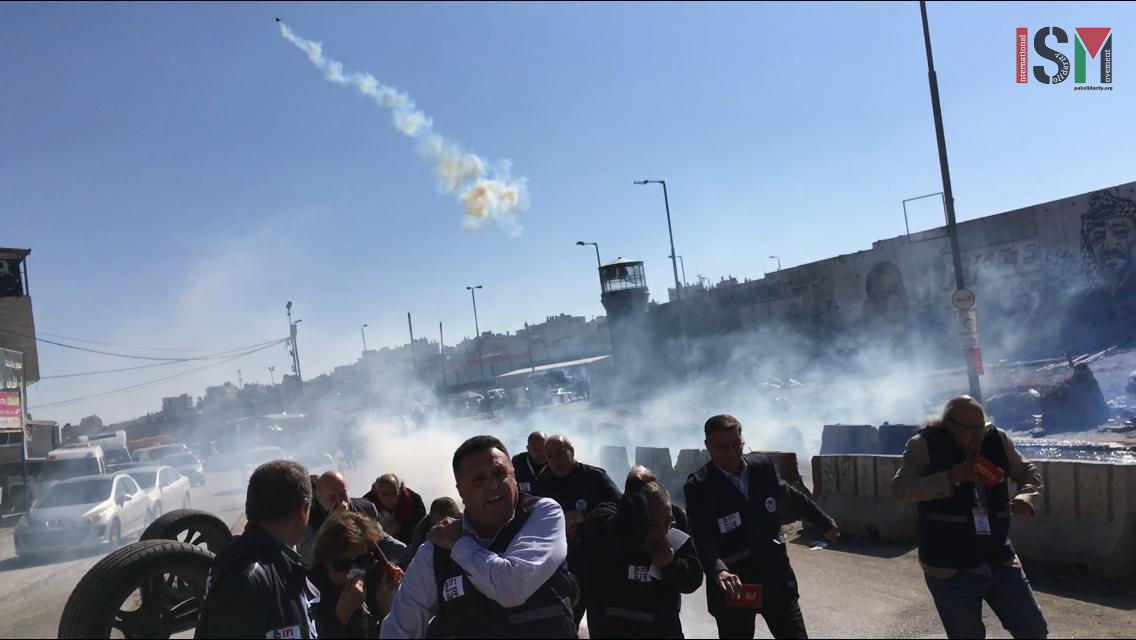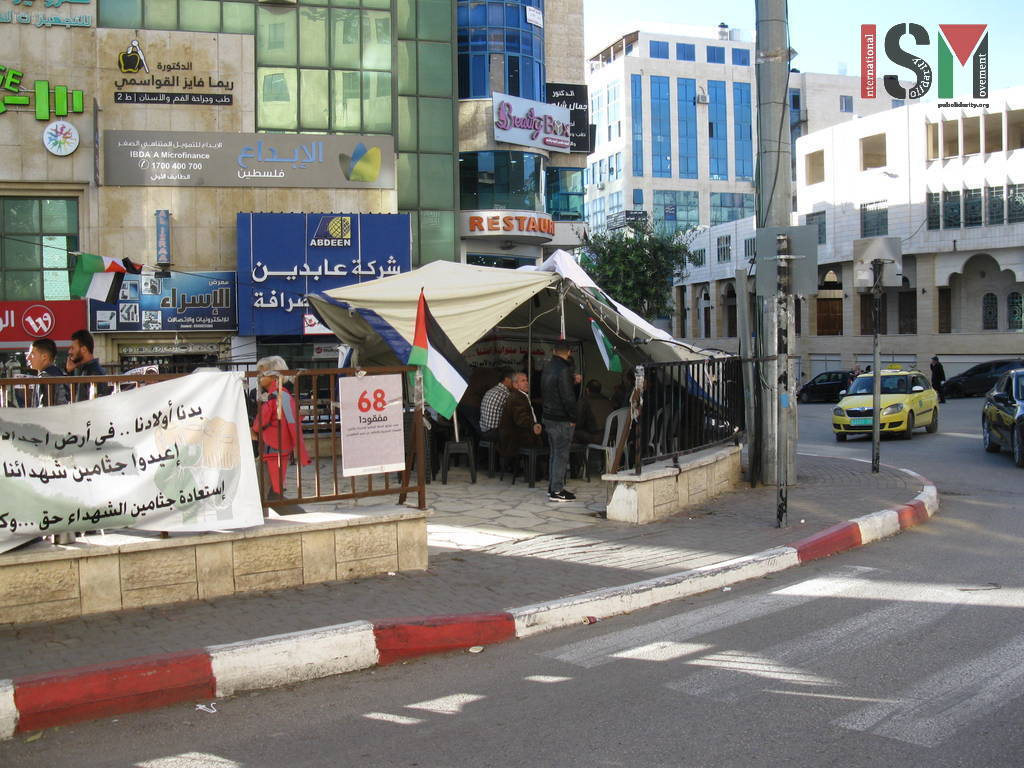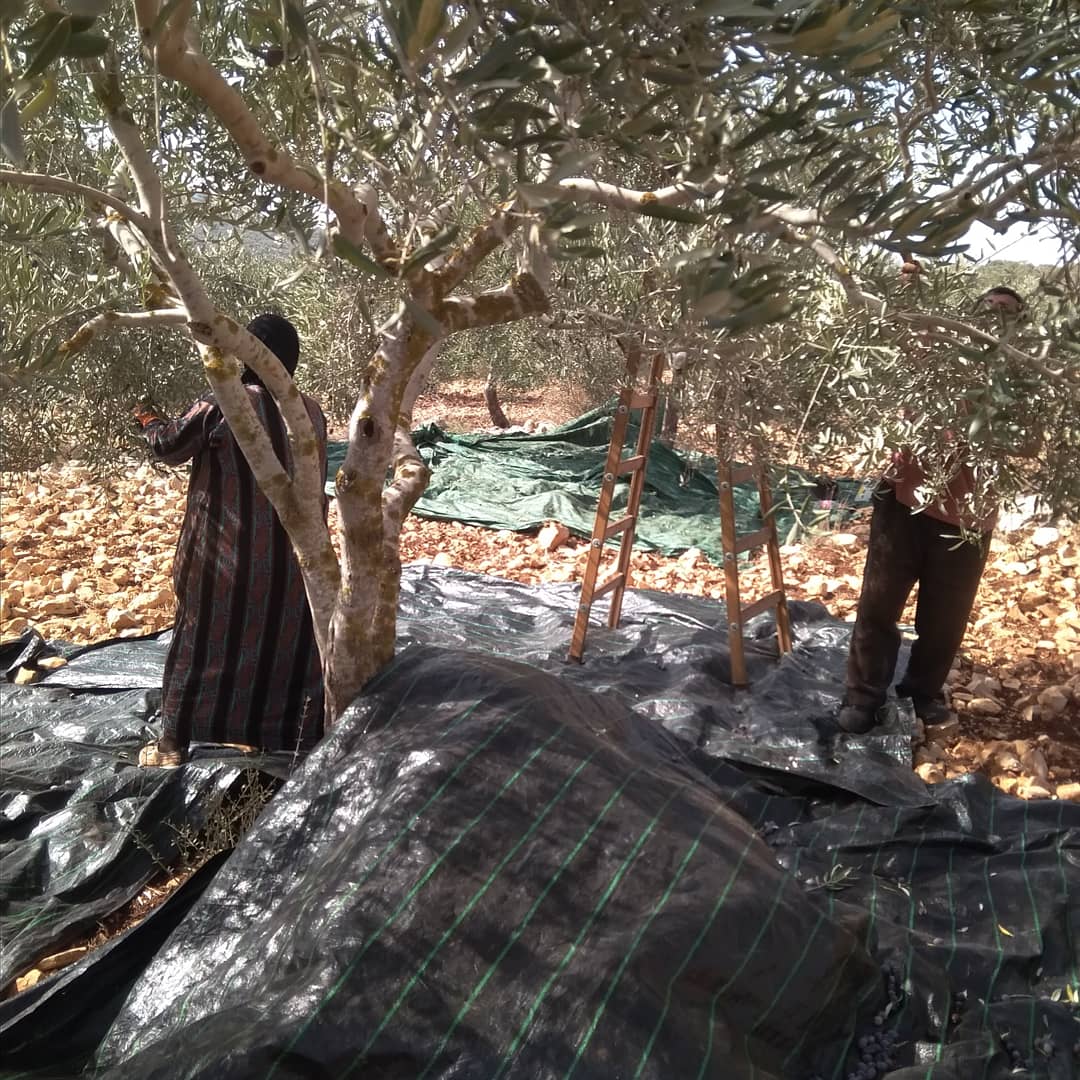Category: Reports
-
International and Palestinian Journalists Tear Gassed
November 17, 2018 | International Solidarity Movement, Ramallah team | Ramallah, occupied Palestine The International Federation of Journalists (IFJ) decided to hold its annual meeting in Palestine this year, where they demonstrated at the infamous Qalandia checkpoint on Saturday. The dozens of journalists, holding only international press cards, were immediately met with canisters of tear…
-
Hebron: Seven weeks after the murder of Wael Fatah Ja’aberi by Israeli Forces, family still awaits his body for burial.
28th Oktober 2018 | International Solidarity Movement, Al-Khalil Team | Hebron, occupied Palestine On Monday October 22, the family of Wael Fatah Ja’aberi gathered in Ibn Rush square in downtown Hebron to protest the murder of their son and the decision of Israeli forces not to return his body to their family for more than…
-
“They take everything,” explains Bruqin farmer during 2018 olive harvest
October 22, 2018 |International Solidarity Movement | Bruqin, Occupied Palestine ISM volunteers spent the day harvesting olives with farmers in Bruqin village, a day that began with Israeli soldiers confronting the farmer and his family and ordering them to leave their land no later than 5 p.m. Since the harvest workday typically concludes…



